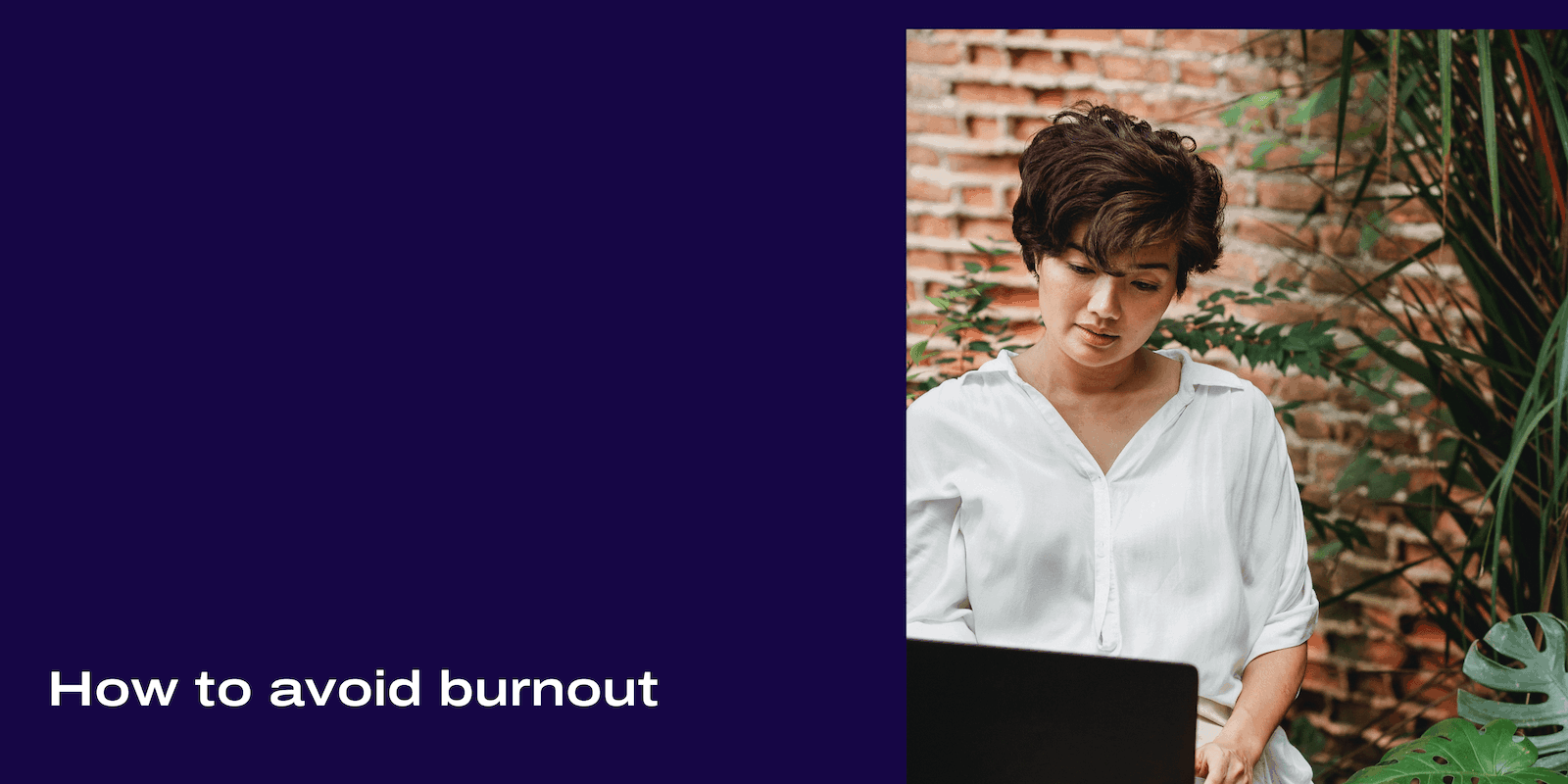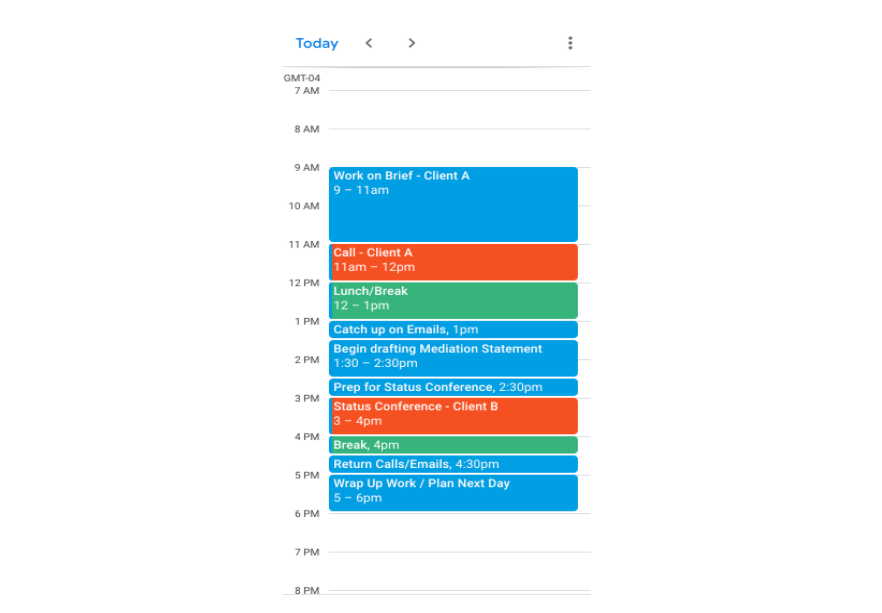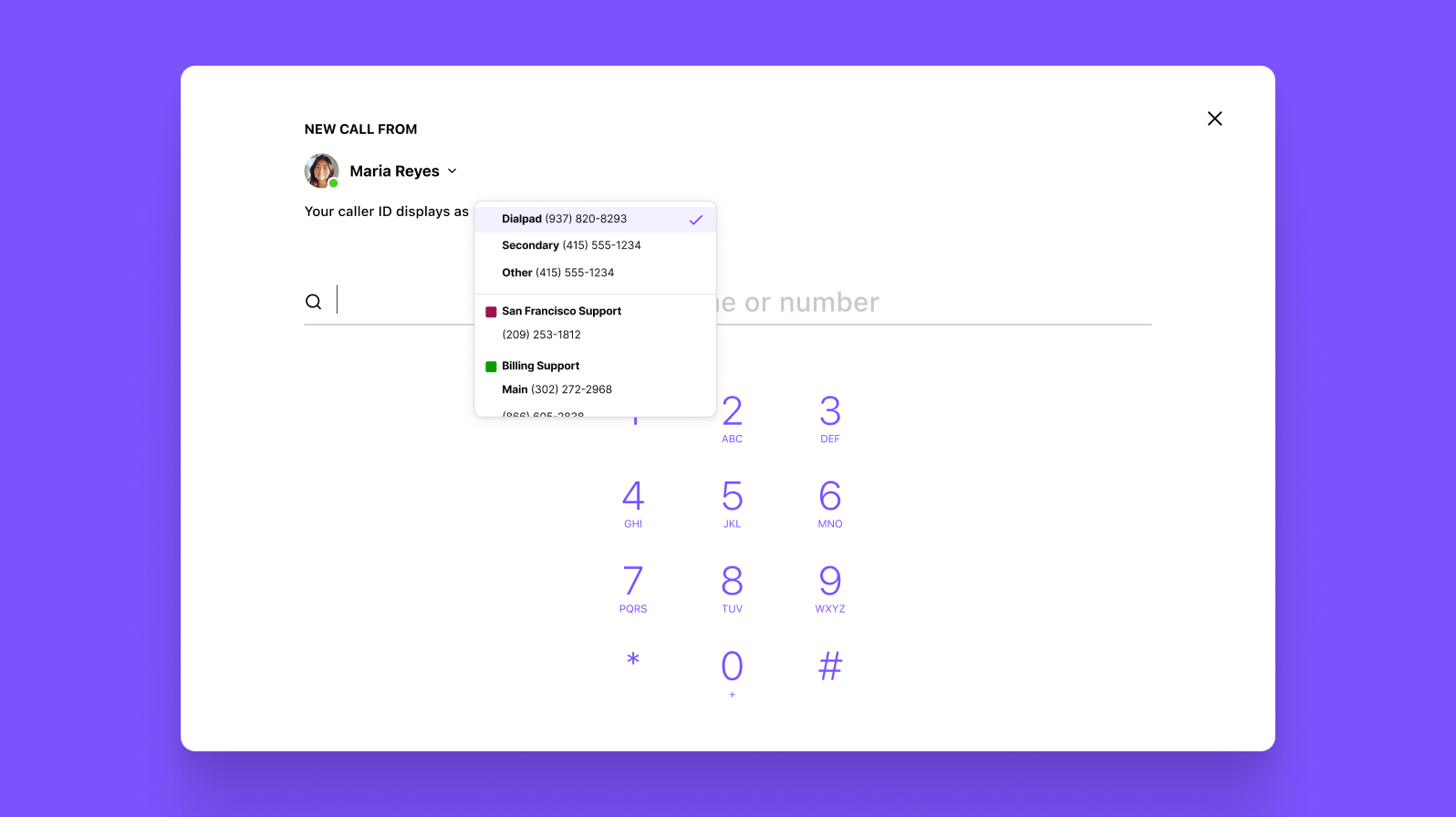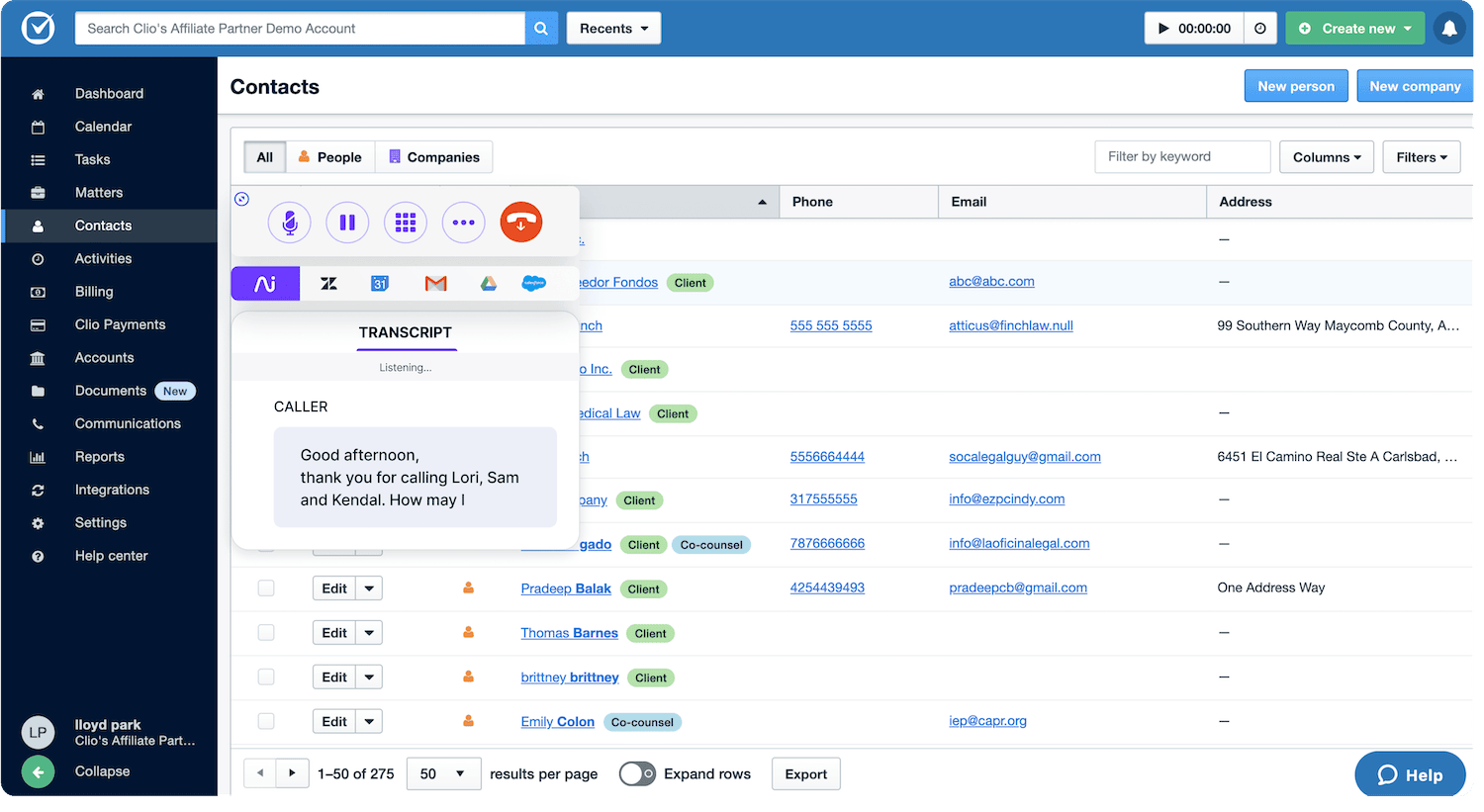Early signs of lawyer burnout (and how to beat it)

Co-founder & COO of evident

Co-founder & CEO of evident

Tags
Share
As we move into the holiday season, it’s always good to reflect on the past year. With the ups and downs of the pandemic still ever-present, it’s been a challenging few years for law firms. For attorneys, these challenges came on top of what can be an already stressful job.
Practicing law requires balancing constant deadlines, long hours, and seemingly never-ending requests for time. Add on top of that that law firms deal with serious issues that require constant diligence and you have a recipe for a high-stress environment.
It's no secret that the legal profession has struggled with mental health issues. Recent studies have shown that 64% of attorneys have anxiety, 31.2% feel depressed, 10.1% feel they have an alcohol problem, and 2.8% feel they have a drug problem.
These are heartbreaking mental health statistics that will require the legal profession to make a real effort at change. But here's the thing—if you are struggling with stress or lawyer burnout, you are not alone. Many lawyers are facing the same issues. And there are steps you can proactively take to manage your own stress as well, even before your law firm takes steps as a whole.
In this article, we’ll cover some early red flags that signal you may be on the verge of burnout, and then some tactics to prevent burnout and stress in your career. It's important to take as much ownership over your mental and physical health as possible. While law school may not have taught you these skills, it's important to learn now!
Early red flags of lawyer burnout
Burnout can come in many different forms. But according to the Mayo Clinic, there are several red flags that may signal you are experiencing burnout. These flags are not unique to law firms but are signs of chronic workplace stress.
Persistent feelings of exhaustion
It’s normal to feel exhausted at times. Your law practice might be particularly busy, and some days you just have a busy day or don’t get a great night of sleep. But if you are feeling exhausted all the time, even when you get a good night’s sleep, it could be a sign that you are experiencing burnout.
Becoming irritable or impatient with co-workers or clients
Your work as an attorney can be stressful. It comes with the territory. And much like it’s normal to feel exhausted at times, many attorneys also get irritable. But if you notice an uptick in how irritable or impatient you are with co-workers or clients, or a colleague mentions something to you about this, be on the lookout for potential lawyer burnout.
Mentally retreating from your job
Are you normally focused and consistently getting your work done? A change in your focus or motivation can be a red flag for burnout. If you find yourself suddenly struggling to stay focused and it is starting to affect your work, take a step back and consider whether you are experiencing burnout.
Becoming cynical or critical at work
Some people are naturally cynics (maybe lawyers more so than others!). So if that’s you, then take this one with a grain of salt. But if you’re normally more even-headed or optimistic but find yourself taking on the role of office cynic, it could be a sign of burnout.
Self-medicating with food, drugs or alcohol
Depression, anxiety, and alcohol/drug abuse are unfortunately not unusual in the legal industry. So this is one you want to be vigilant about. If you are feeling down or overwhelmed at work, and notice a pattern of self-medicating through food, drugs, or alcohol, it’s time to take immediate action to protect your well-being. Lean on your support network or family members and consider whether you need to get help to address burnout.
A change in sleeping habits
This one is pretty straightforward. If you’re normally a good sleeper but are finding it hard to sleep, it’s time to assess what may be causing it. It could be a lack of work-life balance or it could be something else in your life. But getting to the root of the problem and taking action to alleviate stress will help rebalance your sleep habits.
Unexplained headaches or other physical complaints
If you’re noticing a new onset of headaches, stomach pains, or other physical complaints, it’s important to see a doctor for a diagnosis. If the issues are unexplained, it could very well be a sign of stress and burnout from work.
10 strategies to prevent and combat attorney burnout
1. Plan ahead
Lawyers face constant competing demands. Client meetings, court appearances, billable hours, new client consults, emails, conference calls, research, writing, preparing for meetings with opposing counsel—the list sometimes feels endless.
With so many things to stay on top of each day, we can’t understate the importance of planning ahead. And we don’t mean just putting meetings in your calendar. We're talking about yearly, quarterly, monthly and weekly planning.
Having a roadmap for your law practice and your career will help you zoom out from the day-to-day business and feel confident that you are always moving in the right direction. Overwhelm comes from feeling unable to meet your expectations and demands—a clear plan is the antidote.
In the tech world, companies live by a planning process popularized by Google called objectives and key results (OKRs). But we’ve found it very applicable to legal as well. The idea is to start with your objectives for the year, and then break that down into the details of how you will achieve those objectives quarter-by-quarter, month-by-month, and so on.
We’ve found What Matters to be the definitive guide to creating and implementing your own OKRs, and recommend you set aside some time to do this for your practice.
2. Time-block your weeks and days
Once you’ve created your practice plan—whether using OKRs or your own system—the next step is to time block your week and days. All of those competing demands for your time can cause the dreaded end-of-day question—where did the day go?
Being a great attorney requires hard, focused work. It is important to ensure that you create a schedule that separates out time for deep focus sessions and time for more administrative tasks.
This is an important distinction—deep focus vs. shallow tasks. Lawyers are in the client service business, and there is often pressure to respond to every email or every phone call as soon as possible.
But the costs of switching tasks between deep focused work and shallow tasks is enormous. It takes an average of 23 minutes to regain focus after switching tasks. As a result, constant task switching can result in a more than 40% reduction in productivity.
This is a huge problem for lawyers who already face significant demands on their time.
Want to get more done in less time? Time-block your weeks and days. Every week, take 15 to 20 minutes to take stock of your upcoming week and plan out everything from your meetings to when you want to get particular work done. Once you’ve got a weekly outlook, go into your calendar and assign a specific time to each task or piece of work on your plan.
Here’s how it works:
Start by looking at your calendar to see when you have scheduled meetings that already take up time blocks, and assess the blocks you have left.
For the blocks of time that are free, assign them a task. For example, maybe you have a brief due at the end of the week, and your first meeting is not until 11 a.m. Assign 2 hours that morning from 9 to 11 a.m. to make progress on the brief.
You can adjust your daily schedules at the end of each day as the need arises and new issues come up.
Here’s what a fully time-blocked schedule might look like:

In a profession where demands on your time can pile up, it is essential to create a sense of control over your schedule.
Time block planning can be your superpower. Give it a try.
3. Optimize your work processes
By now you’ve set your long-term roadmap and have gotten into the habit of time-block planning to supercharge your productivity. The next step towards reducing feelings of overwhelm is to start optimizing your work processes to reduce any remaining chaos.
Here are a couple of ways to optimize your work:
Get your communications strategy in order. Make sure you have standard operating procedures for handling client intake, client communications, workflow and communications among firm employees. (Maybe you're considering going paperless or AI software for lawyers?) Unstructured communications strategies can cause confusion, and thus overwhelm. It also helps to use solutions like Dialpad that give you everything you need to communicate, from wherever you are. Whether you want to call or send SMS messages to clients or even have secure video meetings, you can do it from the desktop or mobile app—which also shields your personal number when you use it on your own cell phone:

Have a well-organized system for finding new clients. You probably source new clients in a variety of ways—referrals, advertising, networking, and more. Take stock of each of your acquisition channels and ensure processes are in place to optimize your return on investment. We’re also building a new client acquisition channel and attorney growth platform at evident—give it a shot!
Manage your caseload efficiently. In today’s market, there are several great solutions for managing your current caseload—Clio, PracticePanther, MyCase, Smokeball, and many more. If you already have your own system in place, that’s fine, but it’s worth seeing if any of the newer case management platforms can help you streamline your processes. Many of these can integrate with phone systems as well. Clio, for instance, integrates with Dialpad to automatically log calls and details about matters, and even transcribe calls in real time, right inside Clio:

These are just a few of the many ways you can optimize your work process—use your creativity! (Learn more about other law-friendly apps and how to use tools like these to run a virtual law firm.)
4. Set boundaries
Beyond time-block planning your day, you also need to set and enforce some boundaries to allow yourself to perform your work at a high level.
Constant deadlines, meetings, hearings, and requests from clients can get overwhelming pretty quickly.
It is important to set some boundaries for your clients and for yourself that are designed to optimize your ability to deliver high-quality service to your clients and manage your own stress.
For example, when you bring on a new client, take some time upfront to set a communication strategy. Let them know that you may not respond to their emails immediately, but commit to getting back to them the same day.
You also need to set boundaries for yourself. Commit to a goal of shutting down your computer and putting work away at a particular time each night. Now, of course, there will be weeks where you have two briefs due, a mediation, and a court hearing and you just have to plow through. But that’s not every week, and you should try to set some boundaries and prevent yourself from falling into a routine where you aren’t constantly burning the candle at both ends. Otherwise, both your health and your work will suffer.
(One neat feature in Dialpad is the meeting countdown timer, which gives you a gentle nudge and helps prevent meetings from running overtime.)
5. Exercise
We all know how important exercise is but it is hard to consistently fit exercise into our busy daily lives.
You don’t need to craft an elaborate plan—just get started! Start with something you can do consistently whether that’s just taking a 30-minute walk at lunch every day, or doing a few jumping jacks here and there. Do that for a month straight before taking on more.
One final point on exercise—it doesn’t just bring physical health benefits. It can also act as a stress reducer. Hard to ignore something so simple that brings a powerful double benefit.
6. Take a break
One of the best ways to reduce stress during the workday is to take a break. Sounds simple. But in reality, many of us work straight through the day without giving much thought to taking an intentional break.
Like any muscle, your brain also needs a rest. So take a break during the day. Plan it in your calendar. Sure, you may need to move the planned time, but be intentional about carving out some time in your day to take a break. Even 10, 15, 30 minutes can be all you need to recharge.
7. Get sunlight
Now that you’ve planned periodic breaks into your schedule, think about taking at least one of them outside. Getting some sunlight can help boost your mood.
Whether you live in a sunny paradise or somewhere snow falls all winter, try stepping outside even for just a few minutes. It can help reset your mind and give you an energy boost that will help you refocus for the rest of the day.
8. Keep a journal
Journaling has been shown to have many health benefits. It’s just plain helpful to get your thoughts down on paper and take stock of where your stress may be coming from. And for some, it can act as a form of meditation that helps calm anxieties and fears.
You can do it in a notebook, or use one of the dozens of tools available that help guide you into a journaling practice.
9. Spend time with loved ones
Your work as an attorney can be all-consuming. Your client’s problems become your problems, and you’re laser-focused on providing them the best representation possible.
There’s nothing wrong with that, per se. But spending time with loved ones is a great way to remind you of what is most important in your life. Yes, your work is important, and your clients are important. But you also need to remember what is important to you.
Schedule in time for friends, family, and hobbies. Call your mom. Meet up with a friend. Get away from your working world and spend time with people who know you as a person, not as a lawyer.
10. Talk to someone
Each of the above strategies will be helpful in combating stress. But sometimes that is not enough. You may be in a place where it is helpful to speak to a therapist, and you’re not alone.
The legal industry is filled with overachieving personalities that can’t always admit when they need help. And it’s not unique to the legal industry. Michael Phelps is the world’s most decorated Olympic swimmer, but he struggled with depression and anxiety for years before speaking up for help.
There are lots of great resources to get the help you need. Here are some places to start:
Find a local therapist
Use some of the new platforms like TalkSpace
Support and recovery groups such as the Lawyers Depression Project
State and local Lawyer Assistance Programs
Crisis hotlines and call centers (https://suicidepreventionlifeline.org)
Need a better way to manage your case loads and communications with clients?
Book a demo to see how Dialpad can help you provide a better client experience with less effort, or take a self-guided interactive tour of the app first!
